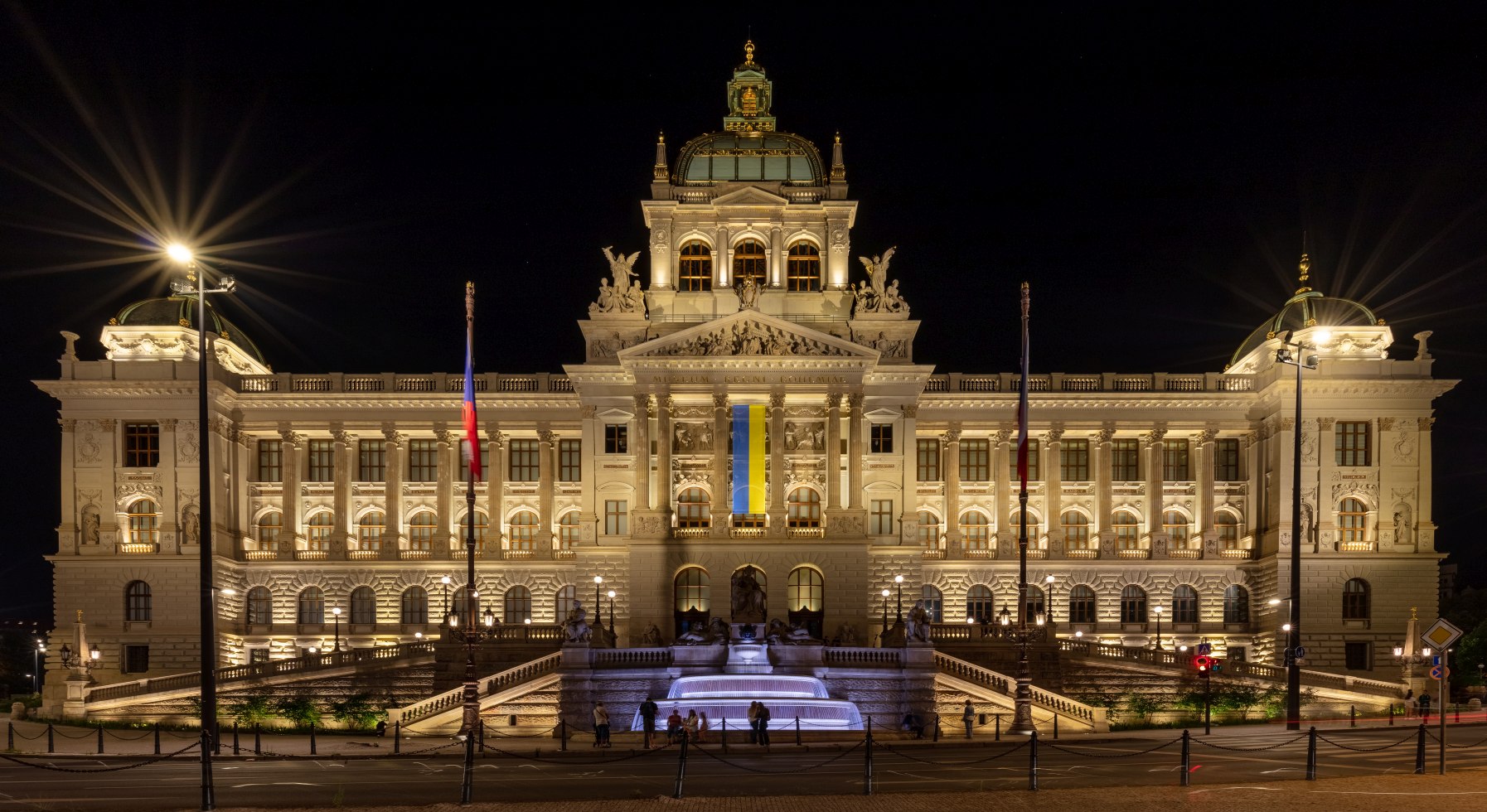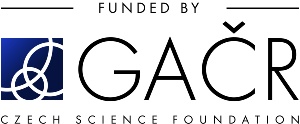
Solidarity As Care And Contestation: Displaced Ukrainians And Local Actors In Prague And Budapest
Solidarity As Care And Contestation: Displaced Ukrainians And Local Actors In Prague And Budapest
Tue Oct 14 10:00:32 CEST 2025

Lecture with Violetta Zentai & Natalia Dziadyk, 4. 11., 14:00
Lecture by Violetta Zentai & Natalia Dziadyk on Tuesday 4.11.2025
The Institute of Ethnology of the Czech Academy of Sciences invites you to the upcoming lecture “Solidarity as Care and Contestation: Displaced Ukrainians and Local Actors in Prague and Budapest” with Violetta Zentai and Natalia Dziadyk from the Central European University (CEU).
The lecture will take place on Tuesday 4.11.2025, 14:00–16:00 (CET) in the conference room (5th floor) of the Institute of Ethnology CAS, Na Florenci 3, Prague 1.
To attend online via MS Teams, please use this link.
Abstract:
This public lecture explores the relational and transformative dimensions of solidarity with displaced people from Ukraine in Central Europe, drawing on ethnographic research conducted in Prague and Budapest. It brings together two distinct yet deeply interconnected research projects, rooted in different urban contexts. One of us examines solidarity in grassroots learning spaces in Budapest, co-created by displaced Ukrainians, Ukrainian-speaking expats, inclusive faith-based actors, and local grassroots groups. The other traces the collaborations between displaced Ukrainian activists and Prague-based solidarians engaged in anti-war advocacy and awareness-raising. By bringing these two empirical contexts into conversation, we highlight how solidarity functions as a form of commoning and care – emotional, practical, and political. Across both contexts, solidarity moved beyond acts of help toward co-created spaces that challenged exclusionary structures and redefined belonging, while contestations over language, visibility, and institutional control simultaneously unsettled and transformed these spaces. Bringing together the concepts of contested solidarity, care, and prefigurative politics, we highlight how displaced people and local solidarians co-create and re-negotiate spaces of cooperation, healing, and resistance.
This public lecture explores the relational and transformative dimensions of solidarity with displaced people from Ukraine in Central Europe, drawing on ethnographic research conducted in Prague and Budapest. It brings together two distinct yet deeply interconnected research projects, rooted in different urban contexts. One of us examines solidarity in grassroots learning spaces in Budapest, co-created by displaced Ukrainians, Ukrainian-speaking expats, inclusive faith-based actors, and local grassroots groups. The other traces the collaborations between displaced Ukrainian activists and Prague-based solidarians engaged in anti-war advocacy and awareness-raising. By bringing these two empirical contexts into conversation, we highlight how solidarity functions as a form of commoning and care – emotional, practical, and political. Across both contexts, solidarity moved beyond acts of help toward co-created spaces that challenged exclusionary structures and redefined belonging, while contestations over language, visibility, and institutional control simultaneously unsettled and transformed these spaces. Bringing together the concepts of contested solidarity, care, and prefigurative politics, we highlight how displaced people and local solidarians co-create and re-negotiate spaces of cooperation, healing, and resistance.
Speakers:
Violetta Zentai is a social anthropologist, professor at the Departments of Public Policy and Sociology and Social Anthropology, and senior researcher at the Democracy Institute of the Central European University (CEU), Vienna–Budapest. She also worked as an expert with the Open Society Foundations for two decades on democratic local governance, equality mainstreaming, and rights-based development.
She was co-founder and director of the Center for Policy Studies at CEU (2003–2020) and served in the core group of the Open Learning Initiative (OLIve), the refugee education program of CEU (2016–2022).
Her research focuses on ethnic–racial and gender in/equalities, post-socialist socio-economic transformations, and pro-equality civil society formations. She has also been engaged in collective research on migrant solidarity, social movements for intersectional social justice, and resistance to illiberal political trends.
Her most recent articles were published (2025) in Critique of Anthropology, Social Inclusion, and the Journal of Immigrant & Refugee Studies.
More information: https://people.ceu.edu/violetta_zentai
She was co-founder and director of the Center for Policy Studies at CEU (2003–2020) and served in the core group of the Open Learning Initiative (OLIve), the refugee education program of CEU (2016–2022).
Her research focuses on ethnic–racial and gender in/equalities, post-socialist socio-economic transformations, and pro-equality civil society formations. She has also been engaged in collective research on migrant solidarity, social movements for intersectional social justice, and resistance to illiberal political trends.
Her most recent articles were published (2025) in Critique of Anthropology, Social Inclusion, and the Journal of Immigrant & Refugee Studies.
More information: https://people.ceu.edu/violetta_zentai
Natalia Dziadyk is a PhD Candidate at the CEU Doctoral School of Political Science, Public Policy and International Relations, and a Junior Visiting Researcher with the Inequalities and Democracy Working Group at the CEU Democracy Institute.
Her PhD project examines how Ukrainian citizens displaced by Russia’s full-scale invasion in 2022 engaged in political activism in Prague, (re)shaping local politics and solidarity relations.
Her recent articles have been published in Citizenship Studies and the Journal of Immigrant & Refugee Studies. She served as Chair of CEU’s Migration Research Group for three years.
She has also contributed to a research project on the civic and political engagement of people with migrant backgrounds in Prague (InBáze – a platform for civic participation of migrants) and participated in the HORIZON 2020 project Skills and Integration of Migrants, Refugees, Asylum Applicants in European Labour Markets (SIRIUS) at Charles University.
She regularly consults for the OSCE Office for Democratic Institutions and Human Rights and is a former Fellow at the Institute for Human Sciences (IWM).
More information: https://dsps.ceu.edu/people/natalia-dziadyk
Her PhD project examines how Ukrainian citizens displaced by Russia’s full-scale invasion in 2022 engaged in political activism in Prague, (re)shaping local politics and solidarity relations.
Her recent articles have been published in Citizenship Studies and the Journal of Immigrant & Refugee Studies. She served as Chair of CEU’s Migration Research Group for three years.
She has also contributed to a research project on the civic and political engagement of people with migrant backgrounds in Prague (InBáze – a platform for civic participation of migrants) and participated in the HORIZON 2020 project Skills and Integration of Migrants, Refugees, Asylum Applicants in European Labour Markets (SIRIUS) at Charles University.
She regularly consults for the OSCE Office for Democratic Institutions and Human Rights and is a former Fellow at the Institute for Human Sciences (IWM).
More information: https://dsps.ceu.edu/people/natalia-dziadyk
This lecture is part of the project “Unequal citizenship and transnational mobilisation of Polish, Czech, and Ukrainian Roma in the face of war in Ukraine”, supported by the Czech Science Foundation, registration no. 24-14388L.
For more information, visit https://rocit.pl.
Photo by Diego Delso, CC-BY-SA 4.0
Download pdf here.


